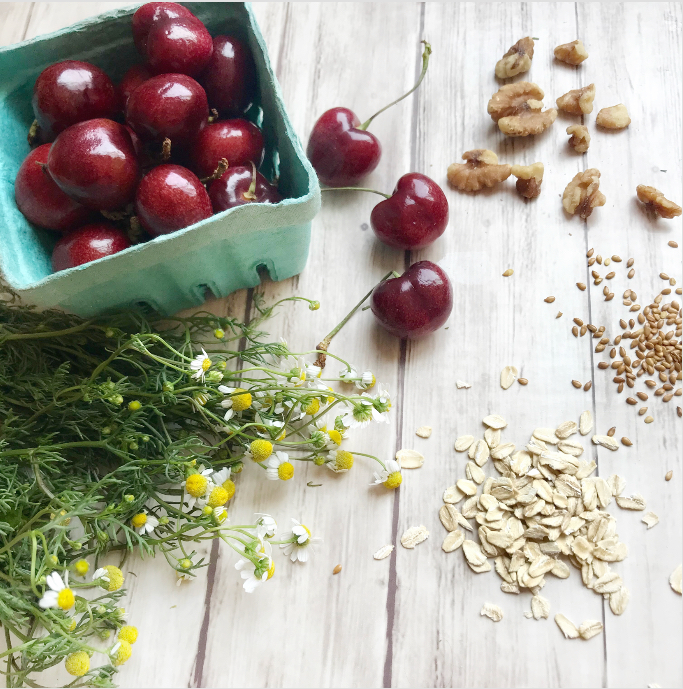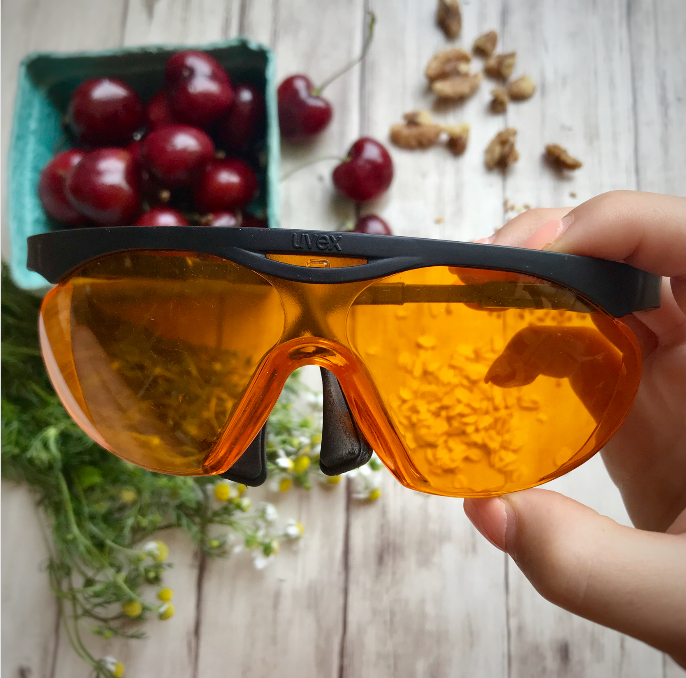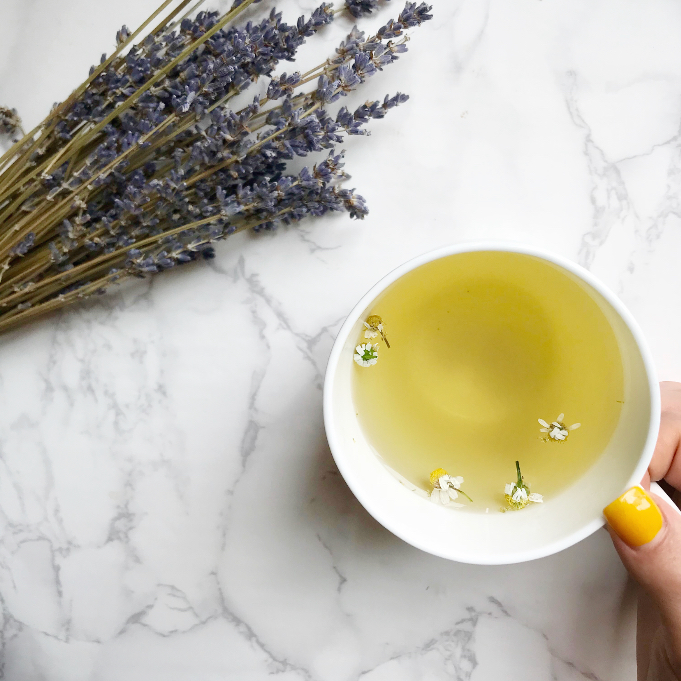
Sleep. It is the underrated part of a healthy lifestyle. We all know we should be prioritizing it but for some reason we don’t. So why is sleep so important and how can we make it on the top of our to do list? That’s what I am answering for you today!
What is sleep?
Sleep is a complex physiological event essential for a person’s well-being where restoration, processing, and strengthening occur within the body and mind. However, according to a study by the National Sleep Foundation (1), 40 million Americans suffer from over 70 different sleep disorders and 60% of adults report having issues with sleep at least a few nights a week.
How much sleep do you need?
Although every individual’s sleep needs may differ, the general recommendation are…
Children 6-13 years old: 9-11 hours per night
Teenagers 14-17 years old: 8-10 hours per night
Adults 18 years or older: 7-9 hours per night
Science Behind Sleep, Weight, and Appetite Regulation – HELLO HORMONES!
Hormones, they run the world! They are a huge factor affected by sleep and control everything in our body including our weight. Adults who get enough sleep have been found to weigh less than those who do not sleep enough (2). A meta-analysis on sleep and obesity found that short sleep for both adults and children was associated with increased risk for obesity. Even sleep that was 1 hour too short seemed to increased body mass index (BMI). Although there is this recognized relationship between sleep and body weight, the specific reason for this association is unknown. One theory is the affect it may have on our hormones, specifically our hunger hormones.
Do you ever feel that when you don’t get a good sleep you’re constantly hungry the next day? Yeah, me too! Growing evidence proposes that sleep may disrupt hormones involved in appetite regulation such as leptin, ghrelin, and insulin; therefore, lack of sleep may make people hungrier throughout the day (3).To better understand how these hormones work, lets take a deeper look at the science behind them.

The gastrointestinal tract is the largest endocrine organ in the body, which is responsible for many hormones that have been shown to influence energy intake including ghrelin, leptin, and insulin.
Ghrelin
Ghrelin, for example, is a hormone that up-regulates appetite (meaning it’s the hormone screaming at you FEED ME NOW!). This appetite-stimulating hormone is secreted most abundantly in the stomach; it increases when you have not eaten for a while and decreases after eating (4).
Leptin
On the contrary, leptin tells your body- OK I’m good! Leptin and ghrelin are like two siblings coming from the same family that couldn’t be more opposite. It is a hormone released from adipose (fat) cells that communicates to the hypothalamus in the brain that you are full. This appetite-suppressing hormone acts on the central nervous system by increasing energy expenditure and regulating food intake throughout the day.
There is a catch. Since leptin is produced by fat cells, its serum content is directly proportional to the amount of total body fat mass (5). This means the more body fat you have the more leptin you have. Since leptin keeps you full, this sounds like a good thing right? But just like insulin resistance is becoming a problem, so is leptin resistance. Although someone may have more leptin in there body, it does not mean it is working efficiently. This is one reason why studies conducted on leptin may be inaccurate if they are not accounting for body weight.
Insulin
Insulin is actually a satiety hormone that regulates many metabolic processes in the body. It is released by the cells of the pancreas in response to sugar (glucose) in the blood, allowing for glucose to transport from the bloodstream into cells (6). In the event of an excessive amount of insulin production hunger levels may rise, which may make it challenging for someone to lose or maintain body weight.
Although the release of insulin is a natural response to changing blood sugar levels, chronically elevated insulin may cause rebounding effects resulting in low blood sugar, and therefore, increased hunger and food cravings (7) – when you crash you crave! See this article here to learn how your diet may be affecting your cravings too. Why We Should All Be Eating Like We Have Type 2 Diabetes

After reviewing all the relevant data on sleep and these three hunger hormones (ghrelin, leptin, and insulin) the evidence inconclusive; however, some of the research showed sleep can affect their regulation. There are so many other factors that can affect our hormones besides sleep such as stress, diet, exercise, gender, and weight that need to be accounted for when it comes to how our hormones function. Improving sleep quality should go hand in hand with having a healthy diet, exercising regularly, and maintaing a healthy weight. Regardless, quality sleep is essential for all areas in life and sleep debt may be a factor related to hunger control. Below are my best tips for improving sleep duration and quality which can play a role in decreasing frequent hunger, increased energy, and living your best life.
Less Light at Night
Blue wavelengths that radiate from electronics such as your phone, TV, computer, etc. can decrease our sleep hormone melatonine that makes you feel ready to hit the sheets. So ditching these devices when it gets closer to bed time may help improve your sleep. According to a randomized trial, avoiding blue light by using amber lense glasses at night time found a significant improvement in sleep quality and mood (8).

I understand that avoiding electronics at night is not always possible, but when you look at bright lights or blue lights at night, they are telling the cells in your body that it is time to wake up now. Not something you wanna do before bed. If you can’t avoid these lights at night here are some other suggestions I would recommend.
- Awlays shut off electronic devices a few hours before bed when possible
- Dim or shut off the lights in your home after sundown
- Use glasses with lenses that block the blue light like the ones found here
- Invest in blackout shades or a sleeping mask
- Put any electronic devices on night shift mode (This can be done in settings under light display on your phone. You can set it to automatically go on and off at certain times daily)
More Shine at Morning Time
Although avoiding light at night is important for sleep regulation, it is just as important to make sure you are looking at light in the morning. This is the equivalent to a cup of coffee for your circadian rhythm! The light from the sun and the sky talk to the SCN of your brain, the part of the brain responsible for controlling our circadian rhythm, telling your body “hey, it’s time to wake up and make some energy now.”
Optimal Sleeping Temperature
When you are about to fall asleep your body temperature decreases to facilitate sleep. Making sure your room is between 60-67 degrees Fahrenheit helps the process of falling asleep and will make it easier to get those ZZZ’s. If you are sleeping in temperatures out of this range you are more likely to decrease the quality of your REM sleep (this is where dreams are made) as well as have restless sleep (9).
Shut Off the Mind
Wondering thoughts is typically the thing that keeps us up all night. Whether you’re thinking about bills, your job, a family member, excitement for a vacation or what you have to do the next day, the thoughts can seems as if they can never just stop! One of my favorite things to do when this happens is meditate. I am not gonna lie I used to think meditation was for the hippies. But meditation is simply doing something that helps you to focus which can include reading, baking, or yoga. What helps me the most for bed is a guided medication or deep breathing exercises. The point is to focus on your breathing or someones voice and before you know it you wake up and it’s morning! There are so many apps you can get to do this now. Another way to kick those thoughts to the curb is journaling whats on your mind or your thoughts before bed to get them out on paper. This can even include making a to-do-list for the next day if that’s what’s keeping you up at night.

Create a Bedtime
Bedtimes are not just for the kiddos. They’re for us adults as well! If you want to value your sleep (as you should), you really want to prioritize giving yourself a nighttime routine. This routine can include some of the tips mentioned above like shutting off your phone, drinking an herbal tea, meditating or reading a book and putting on some PJ’s. Whatever gets you in the mood to wind down is what you should be doing. I recommend setting an alarm on your phone so you don’t forget.
Exercise
People who exercise regularly tend to sleep better at night and have a lower risk for sleep disturbances. According to a meta-analysis (review article combing data from multiple studies) on sleep and exercise, duration of exercise played an important role, if not the most important role, in how exercise can affect sleep. They found that 1 hour seemed to be the ideal workout time; anything more or less was not as reliable for aiding in sleep.
Caffeine
Although some people say “I can drink a cup of coffee and fall asleep” (this used to be me BTW) the caffeine is more than likely still affecting the quality of your sleep. I would recommend limiting your caffeine to one beverage in the morning and if a second one is needed, have it before 2pm. If your finding this hard to do, lets replace this habit before removing it. Try having a cup of caffeinated tea or matcha- this tends to affect people less and from there switch to an herbal tea. It may be hard to do at first, but it will definitely be better for you in the long run. Plus, if you are getting better quality sleep you will feel more energized throughout the day!
Limit Alcohol
According to the National Sleep Foundation (10), 20% of individuals use alcohol to fall asleep due to its drowsiness affects. However, although alcohol can help you fall asleep faster, it can disrupt your circadian rhythm and contribute to poor sleep quality by causing you to wake up in the middle of the night. It can also block REM (rapid-eye-movement) sleep, which is possibly the most restorative type of sleep, that can make you feel groggy and unable to focus in the morning.

Herbs and Supplements
Supplements can be tricky since they are not FDA regulated. For that reason, you want to make sure the brand you are choosing is reputable and that you are choosing supplements in the right form. I linked some of my favorite brands that I would recommend if you are considering trying them. I have no affiliations with these brands they are just my true recommendations.
Chamomile tea: may be useful as a mild sedative before bed. Research on this topic is inconclusive, but some studies have found that chamomile tea may promote sleep quality. Chamomile tea can also have a placebo affect since sipping on tea tends to slow us down and be relaxing. I love this one.
Lavender: lavender aromas can be very calming and relaxing- perfect for before bedtime. You can spray lavender on your pillow at bedtime, use an aromatherapy diffusor, or consume lavender flowers in tea.
L-Theanine: this amino acid occurs naturally in green tea leaves. L-theanine does not cause drowsiness, but rather shift brain waves towards alpha waves within 40 minutes of talking, which is associated with a state of relaxation. Supplementing with L-Theanine will have you feeling calm and relaxed which can aid in sleep. Use code heatherrd for 10% off this one I use.
5-HTP: this is a byproduct of the amino acid L-tryptophan, an amino acid we need to get in our diet because our bodies do not make it on its own. 5-HTP gets converted into seratonine, a neurotransmitter that promotes happiness, and that plays a key role in our sleep/wake cycle. Just like most things do, the production of 5-HTP declines as we age. Some foods that are high in L-tryptophan include turkey, nuts, seeds, fish, oats, and cheese.
Magnesium: magnesium is a natural muscle relaxant. Magnesium rich foods include almonds, spinach, avocado, cashews, and dark chocolate. Most people tend to not get enough magnesium in their diet. A magnesium supplement I would recommend is OMG Magnesium. This is great to drink at night before bed or when you just feel you need to de-stress.
Ashwaganda or Rhodiola: these are adaptogenic mushrooms that can give you a better night’s sleep by regulating your sleep/wake cycle. This sleep/wake cycle, also known as the circadian rythm, is regulated by the hormones cortisol and melatonin. Cortisol is highest in the morning to wake you up and make you feel rested. As it gets later in the day, cortisol decreases and melatonin starts to increase, getting you ready for bed. These adaptagens can be taking in powder or pill form and can help suppress cortisol at night so that melatonin can increase.
Melatonin: this is your sleep hormone; it is highest at night before bed time when your environment starts to get darker. You can take melatonin in a supplement form to help aid this process like the one here. Some foods also naturally contain melatonin including tart cherries, asparagus, broccoli, nuts and seeds. Use code heatherrd for 10% off this one.
(1) American Psychology Association. (n.d.). Why sleep is important. Retrieved December
9, 2017, from http://www.apa.org/topics/sleep/why.aspx
(2) Harvard. (2015). Sleep Deprivation and Obesity. Retrieved December 10, 2017,
from https://www.hsph.harvard.edu/nutritionsource/sleep/
(3) Prinz, P. (2004, December). Sleep, Appetite, and Obesity- What Is the Link?
Retrieved December 10, 2017, from
https://www.ncbi.nlm.nih.gov/pmc/articles/PMC535424/
(4) Chaudhri, O., Small, C., & Bloom, S. (2006). Gastrointestinal hormones regulating
appetite. Philosophical Transactions of the Royal Society B: Biological
Sciences, 361(1471), 1187–1209. http://doi.org/10.1098/rstb.2006.1856
(5) Cardoso Fernandes Toffolo, M., Aparecida Marliére, C., Nascimento de Freitas, S., &
Silva de Aguiar Nemer, A. (2012). Increasing leptin level in abstaining
alcohol-dependent women. Nutricion Hospitalaria, 27(3), 781-788.
doi:10.3305/nh.2012.27.3.5695
(6) Lemmens, S. G., Martens, E. A., Kester, A. D., & Westerterp-Plantenga, M. S. (2011).
Changes in gut hormone and glucose concentrations in relation to hunger and
fullness. The American Journal of Clinical Nutrition, 94(3), 717-725.
doi:10.3945/ajcn.110.008631
(7) Mayo Clinic. (2016). Reactive hypoglycemia: What causes it? Retrieved April 1, 2018,
from
https://www.mayoclinic.org/diseases-conditions/diabetes/expert-answers/reactive-hypoglycemia/faq-20057778
(8) Burkhart, K., & Phelps, J. R. (2009). Amber lenses to block blue light and improve sleep: a randomized trial. Chronobiology International, 26(8), 1602-1612. doi:10.3109/07420520903523719
(9) Ware, A. (2014, November 10). Best Temperature for Sleep. Retrieved from https://sleep.org/articles/temperature-for-sleep/
(10) How Alcohol Affects the Quality-And Quantity-Of Sleep. (n.d.). Retrieved from https://sleepfoundation.org/sleep-topics/how-alcohol-affects-sleep